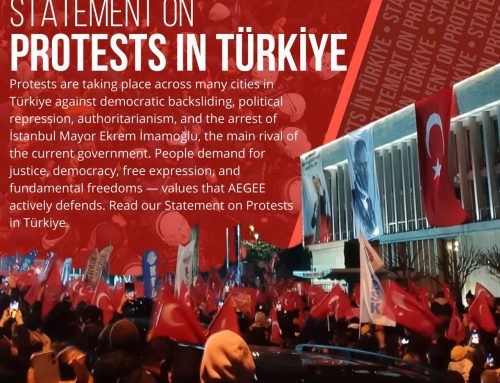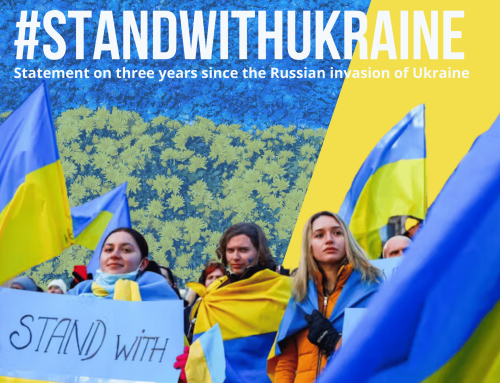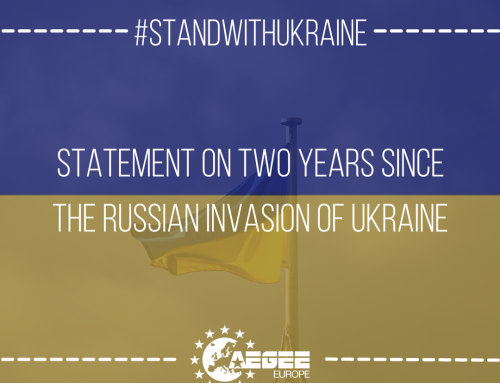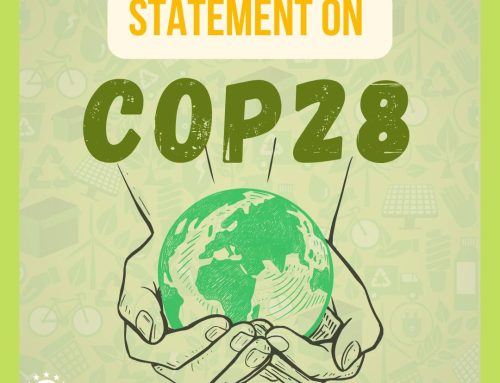The International Day Against Homophobia, Biphobia, Intersexphobia and Transphobia is a reminder of the importance of standing for the rights of the LGBTI+ community in Europe and in the world. Even though LGBTI+ rights have seen a steady but slow progress in the past decade, hate speech and hate crimes are still widespread.
Over the past twelve months, both ILGA-Europe and the European Parliament have denounced the sharp rise in hate speech against LGBTI+ people online and offline. The Polish LGBTI+ community has endured the strongest backlash against them: the anti-LGBTI+ rhetoric of the ruling Law and Justice (PiS) party ahead of the parliamentary elections in Autumn has resulted in more than 80 municipalities, counties and provinces in the south-east of the country to declare themselves as “free of LGBTI+ ideology”.
But Poland is not the only country where hate speech is on the rise. Even in Spain, one of the first countries in the world to recognise same-sex marriages, homophobic speech is on the rise: Vox, the far-right party which scored third in the November elections, is known for its homophobic rhetoric and in the election campaign promised to ban Pride marches. Hate speech is a powerful fuel for violence: in January 2020 three different homophobic attacks were registered in Torremolinos, Vallecas (Madrid) and Barcelona.
While the Russian LGBTI+ community is already one of the most vulnerable in Europe, in March Vladimir Putin has proposed a draft amendment to Russia’s constitution that would define marriage as the union between a man and a woman.
When it comes to freedom of assembly and freedom of speech, 2019 saw several Pride marches and LGBTI+ events being banned in Turkey on grounds of public health and public morality. Investigations and trials against Pride participants in several Turkish cities are ongoing, while the criminal hearing against 19 organisers of the LGBTI+ Pride March at METU in Ankara has been postponed again to July.
Even in front of constant backlash and hate speech, LGBTI+ rights are slowly progressing. 2019 has been an important year especially for trans and intersex identities, which have so far benefited the least from the victories of the LGBTI+ movement. In May, the World Health Organisation updated the International Classification of Diseases (ICD-11) and reframed “gender identity disorders” as “gender incongruence.” Gender nonconformity is now included in a chapter on sexual health, rather than being listed with “mental disorders”. Even though this is an extremely important decision, adoption in national legislations and implementation will take time.
Marriage equality and family rights have also seen some progress in 2019, with Northern Ireland passing legislation that allows same-sex marriage in July 2019, and the Croatian Constitutional Court pronouncing itself on the right of same-sex couples to be foster parents in February 2020. Also in February, 60% of the Swiss electorate voted in a referendum for the inclusion of protection of LGBTI+ people in the anti-discrimination legislation.
In these weeks, while world leaders and the media are focused on the response to the COVID-19 pandemic, the Hungarian government has attempted to use emergency powers in order to make legal gender recognition of trans and intersex citizens impossible. At the same time, religious leaders in Italy, Ukraine and Turkey have been blaming “gay marriage” and “homosexuality” as the reasons for the pandemic.
Furthermore, the impact of the pandemic on the LGBTI+ community is not receiving enough attention: LGBTI+ people who are closeted or living with LGBTI-phobic families are at high risk of domestic violence and mental distress, not to mention the impact of lockdown measures on homeless people, sex workers and persons in precarious jobs, many of whom are also LGBTI+. Due to the pandemic, access to healthcare for members of the LGBTI+ community, and especially for trans* people, is very often compromised.
For all these reasons, it is of utmost importance that authorities and governments, and especially the European Union, do not postpone their efforts to protect LGBTI+ rights because of the pandemic. The response to the pandemic needs to be designed so as not to leave anyone behind and not to increase social inequalities and hatred. In January 2020 the European Commission finally announced its intention to launch the first LGBTI+ Equality Strategy, which would mark a significant step towards the protection of LGBTI+ rights across the continent. The Strategy, foreseen to be adopted in the fourth quarter of 2020, should not be postponed. Moreover, AEGEE-Europe demands that the perspectives of young LGBTI+ people are included in the Strategy, and their specific needs addressed.
This year Prides have been cancelled all over the world as part of the measures to prevent the spread of COVID-19. Still, this year more than ever it is important for the LGBTI+ community to come together, support each other, celebrate successes, demand recognition, and be visible. Online spaces offer many opportunities for organising and launching new initiatives, as well as for creating a community. Therefore, today we still celebrate IDAHOBIT and in the next month, we will still celebrate Pride from the safety of our homes, while also supporting those members of the LGBTI+ community which are the most vulnerable during the pandemic. In these challenging times, AEGEE-Europe will continue to provide a safe and welcoming space for young Europeans belonging to the LGBTI+ community and to make their voices heard and their experiences visible.
Sources:
- Charting a Sharp Rise in Anti-LGBTI+ Hate Speech Across Europe
- Parliament strongly condemns ‘‘LGBTI+-free zones’’ in Poland
- Far-right Vox challenges Spain’s acceptance of LGBT rights
- Gay couple savagely beaten and hospitalised by gang of thugs in Spanish queer hotspot
- Nueva agresión homófoba en Vallecas (Madrid)
- Denuncian dos agresiones homófobas este fin de semana en Barcelona
- Putin submits plans for constitutional ban on same-sex marriage
- The Turkish authorities must drop all charges against LGBTI+ activists who participated in Pride
- METU Pride March trials
- The World Health Organization Will Stop Classifying Transgender People as Having a ‘Mental Disorder’
- Same-sex marriage now legal in Northern Ireland
- Croatia Constitutional Court: Same Sex Couples Can Be Foster Parents
- la Suisse dit clairement OUI à la protection contre les discriminations.
- #Drop33: Europe’s Two Largest Networks of LGBTI+ and Transgender Organisations call on Hungarian Parliament to Reject Attempts to Ban Legal Gender Recognition
- Turkish cleric declares that the ‘evil’ of homosexuality ‘brings illness and corrupts generations’
- Il Coronavirus e la mano di Dio – Intervista all’arcivescovo Carlo Maria Viganò
- LGBT+ group sues Ukraine religious figure linking coronavirus to gay marriage






